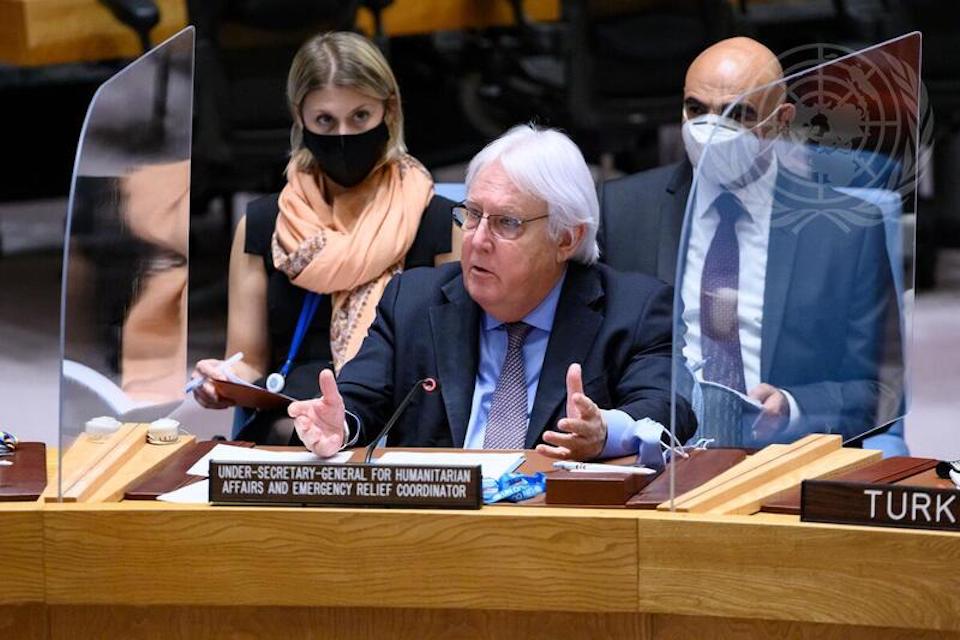The humanitarian cost of 12 years of conflict in Syria
Statement by Fergus Eckersley UK Political Coordinator at the UN, at Security Council meetings on the humanitarian situation in Syria

Thank you Madam President and thanks to Under-Secretary-General Griffiths and Mr Egeland for their updates.
As we enter 2022, the 12th year of the conflict, the Syrian crisis continues to deteriorate. As we have heard today, the humanitarian costs are clear: 13.4 million people are in desperate need of humanitarian assistance across Syria.
We will take specifically about the very concerning situation in North East Syria a bit later. In North West Syria there are 3.4 million people whose humanitarian needs can currently only be met by the scale of assistance provided by the UN cross-border mandate.
Daily airstrikes and artillery shelling continue, with 35 airstrikes recorded in one week over the New Year period, with reports of increased attacks on civilian infrastructure. Civilians are being killed, maimed and forcibly recruited in flagrant violation of International Humanitarian Law. We are particularly concerned by continued use of besiegement and starvation as tools of war, as well as grave violation of children’s rights.
In the context, I wanted to touch on the work of the Independent Senior Advisory Panel on Humanitarian De-confliction in Syria and reflect on the executive summary of their work that was published yesterday.
As this Council knows, the panel was set-up to build on the work of the UN Board of Inquiry, which investigated some of the appalling attacks on facilities, either on the United Nations de-confliction list or supported by the United Nations, in Idlib in 2019.
As the Board of Inquiry set out in April 2020, it was ‘highly probable” that the Syrian regime and/or its allies were behind attacks on four civilian facilities, a school, a healthcare centre, a hospital and a childcare facility. The UK has continued to call for accountability for these crimes and has condemned similar attacks throughout the conflict, including that on Al-Atareb hospital last year.
It is clear from the summary of the panel’s work that there is still a lot more to do. It is, of course, essential that the UN implements the panel’s recommendations in Syria and beyond. Fact-finding, investigation and accountability in the case of abuse and attacks are particularly important.
But any mechanism that sets out to support the protection of civilians and facilitation of humanitarian aid depends on armed actors taking their obligations seriously, including through participation in the de-confliction mechanism. Without this, a relationship of trust between armed actors and humanitarians is not possible.
By targeting schools, hospitals and emergency first responders, the Assad regime and Russia have demonstrated scant regard for international humanitarian law throughout the conflict.
The protection of civilians is paramount. We reiterate the obligation on all parties to make every effort to avoid civilian casualties, including by avoiding the use of indiscriminate weaponry in urban environments. And the UK will continue to call for those violating International Humanitarian Law to be held accountable for their crimes.